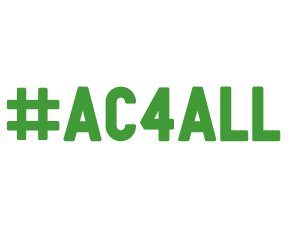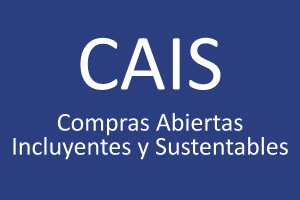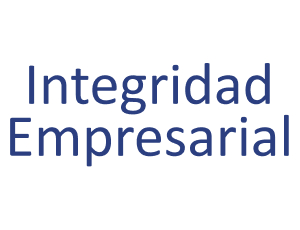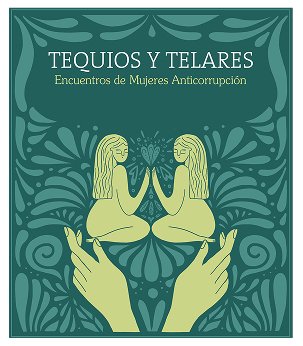- ¿QUIÉNES SOMOS?
- Programas
- Programa de Diagnóstico, Medición y Evaluación de Impacto
- Unidad de Monitoreo de Procesos
- Programa de Convenciones y Mecanismos Internacionales Anticorrupción
- Programa Sectorial en Educación y Rendición de Cuentas
- Programa de Integridad en el Financiamiento Climático (CFIP)
- Programa Editorial
- Iniciativa para el Fortalecimiento de la Institucionalidad de los Programas Sociales (IPRO)
- Programa de Investigación sobre Ciudadanía y Mercados
- BIBLIOTECA
- Comunicados de Prensa
- RENDICIÓN DE CUENTAS
- CONTACTO
How to rebuild Acapulco and at the same time minimize corruption?
When we see tragic situations, like the one that recently occurred in the state of Guerrero, Mexico, after Hurricane Otis, it takes time to really visualize the magnitude of the disaster. Acapulco, a city of almost 800,000 people, was destroyed. Many of its inhabitants do not have drinking water, food, homes, or electricity. Many, also, were left without their main source of income. It will take years for the port and its surroundings to recover socially and economically. For those of us who live in coastal areas, it is impossible to write about Hurricane Otis—which in less than twelve hours went from being a tropical storm to a category five hurricane with wind gusts were 325km/hr—without mentioning climate emergency. Today, however, it seems important to understand the differences between what is needed, and will be needed, in the different stages of reconstruction that we are experiencing.
During an emergency, time is of the essence. The emergency period requires speed to save lives and to avoid more victims, which is the number one priority. Normally, the emergency is a short period or time: days or weeks, at most a couple of months. In these first moments is when invaluable solidarity arises between communities, and also when there is greater coverage and visibility by the government, the media and society as a whole. In periods of emergencies, organized and unorganized civil society has participated searching for people, donating supplies, caring for sick people, verifying information, providing shelter and psychological care, just to mention a few examples. Given our history, us Mexicans have characterized ourselves as providers of support to people affected in emergencies. It is vital to live up to that part ouf our identity, we cannot lose that momentum of help and solidarity when it is needed most.
In these moments of emergency, in which governments have to make quick decisions, it is also important to strengthen citizen surveillance mechanisms. An example of the above are the efforts made by various organizations in the COVID-19 pandemic. Since before the formal declaration of emergency, we integrated a working group of thirteen Transparency International chapters from Latin American countries, to identify risks in public contracting in states of emergency and mitigate the possibility of corruption: opacity, hidden contracts, overpricing, lack of competition and collusion, among others. On the other hand, Transparencia Mexicana and TOJIL (an association of lawyers that combats impunity) organized the #SusanaVigilancia effort. In this period of emergency and complete uncertainty in the world, #SusanaVigilancia was in charge of monitoring the three powers of the Mexican State in terms of the right to information, public resources, public contracts, digital and open justice and groups in situation of vulnerability.
Reconstruction, contrary to the emergency, is a period of years, sometimes decades, it is much slower and crucial. It is a period in which the momentum and the eyes of all sectors diminish. The daily lives of those people who lived it from a distance return to normal and this is where we must remember that help, although no longer urgent, is still necessary. For those who lost family members, their lifelong assets, their health treatments or their source of income, daily life does not return with that “normality.” Reconstruction is a complex period, it requires planning and foresight. In fact, compared to an emergency situation, it requires a much larger amount of financial and human resources.
In the periods following an emergency, in recovery and reconstruction, Transparencia Mexicana, the Mexican Chapter of Transparency International, has focused and donated its work so that these efforts happen without corruption. From tragedies such as the fire at the ABC Daycare in Sonora through mechanisms for the participation of fathers and mothers to improve the safety and hygiene of the daycare centers of the Mexican Social Security Institute (IMSS); to disasters caused by natural phenomena such as Hurricanes Alex, Ingrid and Manuel; torrential storms in the state of Sinaloa; with the participation of local organizations in the #Torrente (#Flood) collective; the 2017 earthquakes through the #Epicentro (#Epicenter) mechanism with the participation of dozens of organizations civil society and its monitoring efforts at six months and one year; and now Otis in Guerrero with the Working Group for reconstruction without corruption. To respond to the disaster caused by Hurricane Otis, the National Institute of Transparency, Access to Information and Protection of Personal Data (INAI), the Executive Secretariat of the National Anti-Corruption System (SESNA), the Citizen Participation Committee of the National Anti-Corruption System (CPC-SNA), the National Autonomous University of Mexico (UNAM)—through the University Seminar on Socio-Environmental Risks (SURSA) and the University Seminar on Transparency (SUT)—and Transparencia Mexicana launched a working group, which is beginning to become known publicly as Reef for Acapulco, alluding to those communities and marine structures that, due to their geographical location, function as barriers to protect the mangroves from the waves and as support for the formation of life. Arrecife para Acapulco works for the reconstruction without corruption in the municipalities most affected by Hurricane Otis.
The reconstruction of the state of Guerrero is barely being measured, it is estimated at around 270 billion pesos, around 15 billion dollars. Our working group will take advantage of the experience of different national and international institutions, organizations and groups to contribute to the design, monitoring and follow-up of the reconstruction strategy. This will lead us to issue recommendations for the authorities of the three levels of government and for the participating civil society to enhance transparency of the actions carried out and anticorruption strategies to monitoring of resources from their origin to their destination. This includes giving fiscal incentives to those who really need them; monitoring the efficiency and openness of public procurement for infrastructure and recovery of the economic life of the affected municipalities; the protection of personal data of the affected persons; and, with this, contribute to the institutional and social learning of Mexico in disaster situations that require rebuilding a city. Arrecife para Acapulco is an example of to use anticorruption to address a climate crisis situation in the world and the need to modify the way cities are built and lived; as well as to consider the inequalities and poverty that affect the communities. If we do not act strategically, to address reconstruction without corruption, the municipalities of Acapulco and Coyuca de Benitez will continue to be vulnerable and prone to emergencies in the future. This will increase the inequality and poverty that prevails in the port and its surroundings. The people from Acapulco with whom I have spoken to, seek and dream of a conscious and friendly reconstruction taking into account our environment and its ecosystems, where the interests of a few do not take away the rights of the majority. The situation demands the minds and talent of the entire country to raise the city again. Rebuilding the city implies doing it in an integral way, taking care of what belongs to the people of Acapulco. For people interested in putting their knowledge and experience at the service of reconstruction without corruption in Acapulco and Coyuca de Benitez, we have enabled the email account arrecife@tm.org.mx. People and institutions are ready to participate in the reconstruction of a stronger and more resilient Acapulco, which encourages us to rethink our cities for the benefit of their communities.
Tagged with: Acapulco • Hurricane Otis • Reconstruction • Transparencia Mexicana • Transparency International












